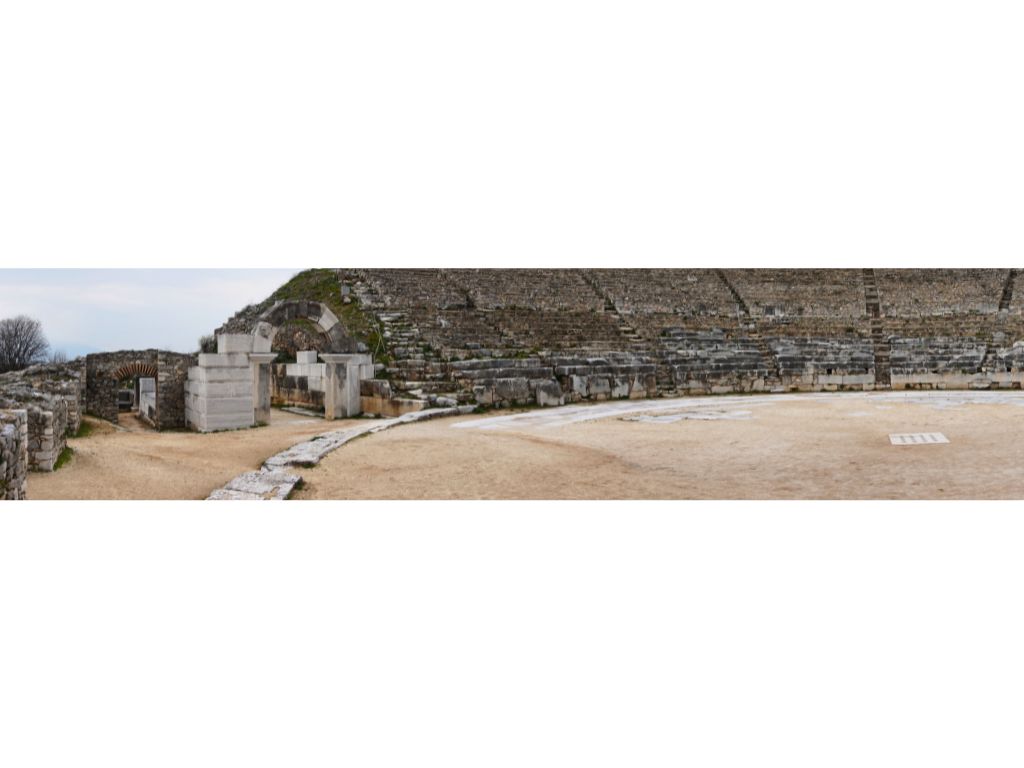Is this a theater or an amphitheater? “Amphi” means both sides, as in amphibian or ambidextrous. An amphibian is an animal that lives in both water and the ground. Ambidextrous is a person who uses both sides equally, both right and left. So, an amphitheater is a round, fully round structure. This place in Philippi, Greece is not an amphitheater. It is a theater because it is only half.
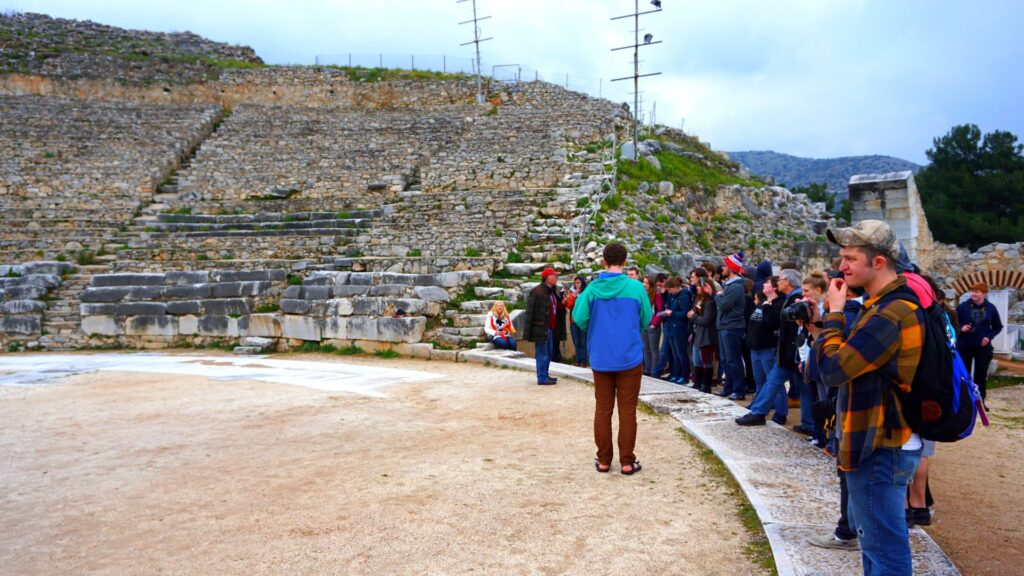
The Greek word for theater, (θέατρο) comes from two words. God + using something from a distance: God (θεός ) and από. The meaning of the root of από is to use something from a distance.
Remember, today we ourselves are up on stage. We are the actors. And God is here watching us. Yes, this is how the two things are connected. God is using something from a distance. We are on the stage. God watches us from the seats.
Here is a close-up of theater seating in Philippi, Greece.
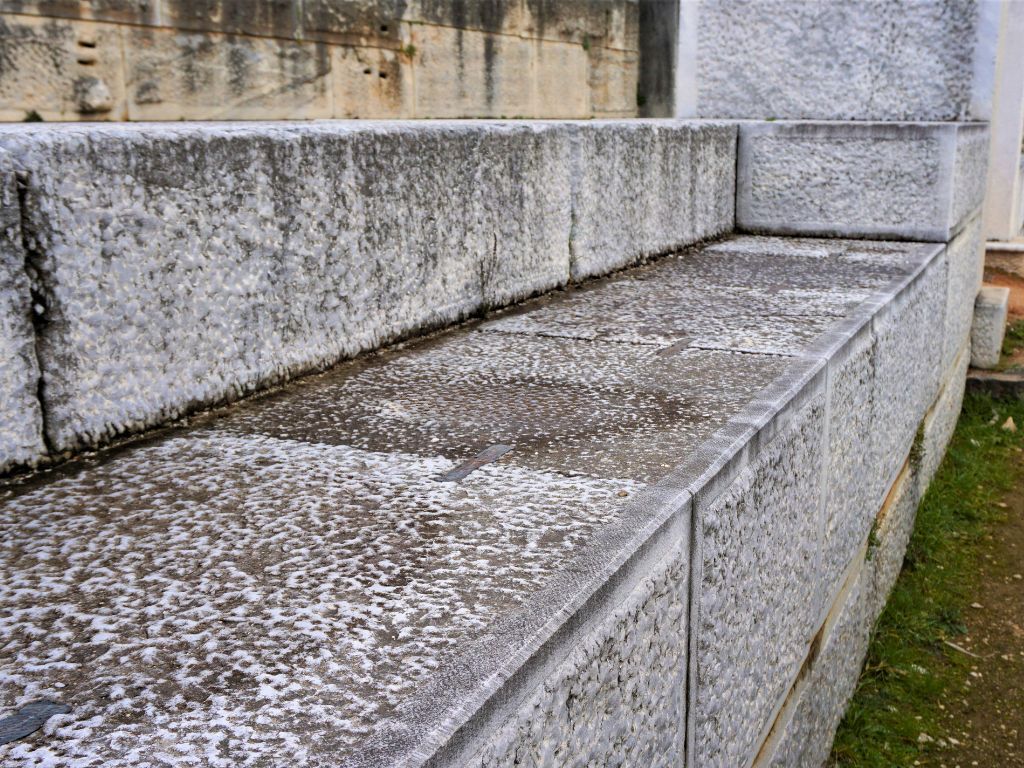
Greek theater was not just to amuse the people. The actors taught morals, the base of the Athenian political system. And for that reason, Greeks called their actors moral makers (ηθοποιός). Itho (ηθο) means maker and ethos (ήθος) is the morals. The maker (actor) taught the morals of the Athenian political system. Theater was born in Athens and grew up alongside Athenian democracy.
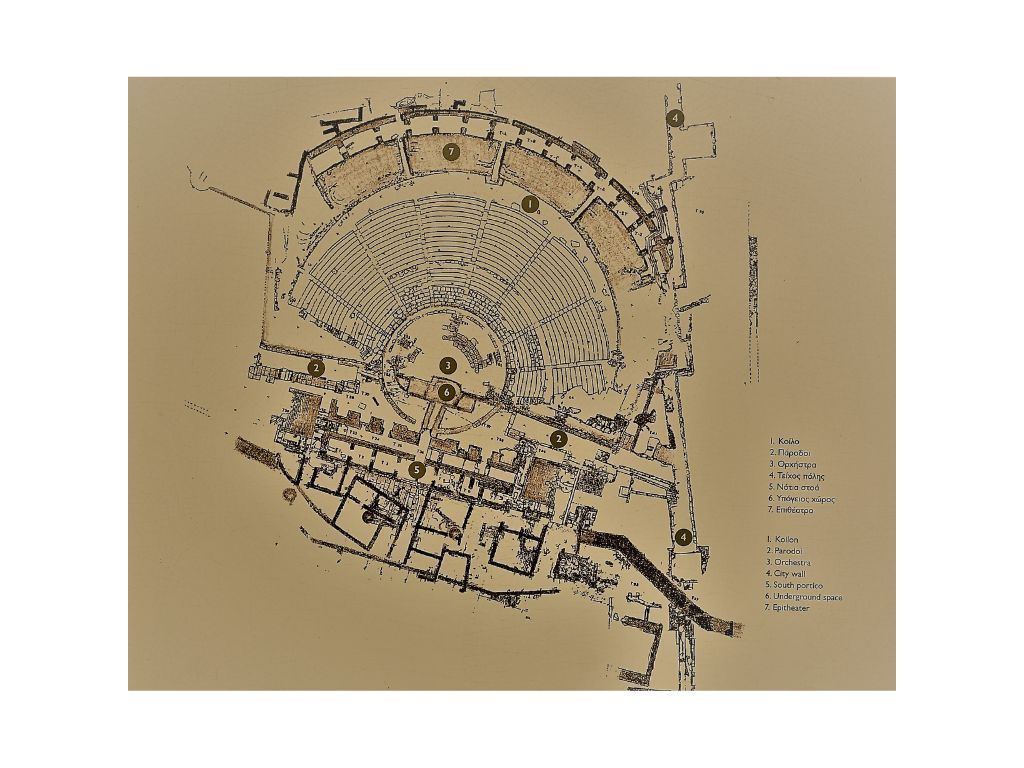
The institution of the theater began during a celebration of the god Dionysus in Athens. Near the celebration at the temple of Dionysus, there was a threshing floor. (At the threshing floor, farmers smashed wheat ears to separate the useful wheat grain from the straw.) So, the threshing floor, close to the Temple of Dionysus, was a very convenient place for the farmers to celebrate Dionysus. The Greeks celebrated with dances at the threshing floor. And this is the very beginning of theater.
Greeks still today, celebrate saints (for most Greeks, the saints replace the ancient gods in their minds). Greeks go somewhere, in the yard of the church, or in the store, and they start dancing dances in circles. Have you ever seen Greeks dance in circles?
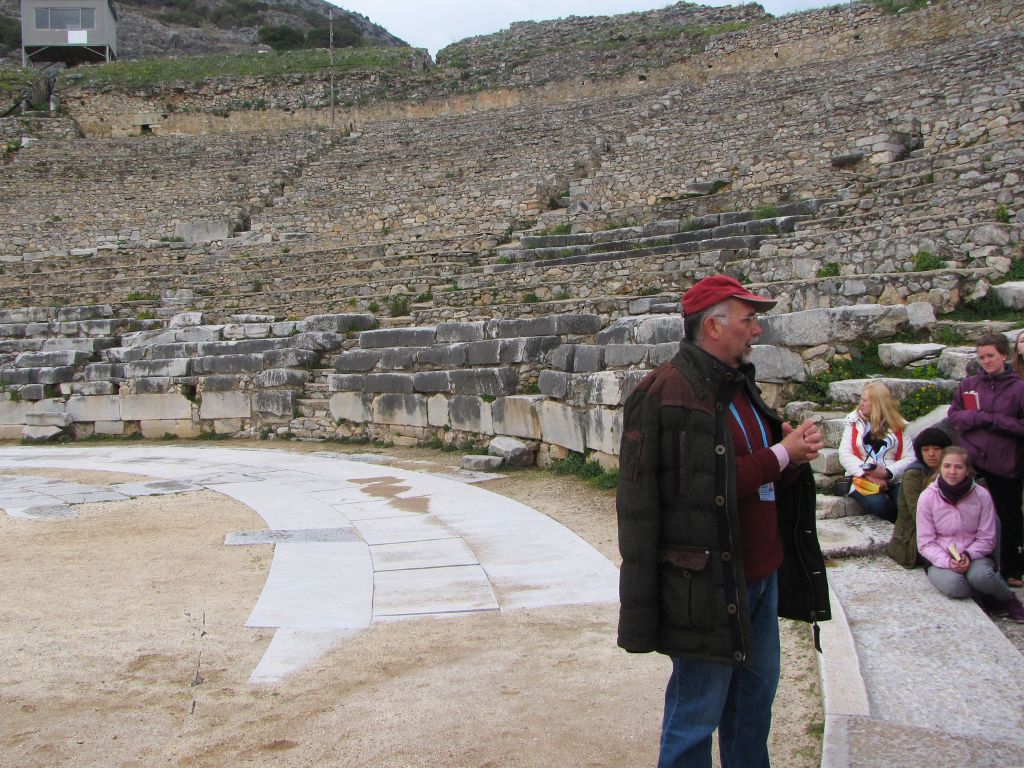
We know about Greeks dancing in circles. What about singing, and dancing in a circle, at the same time?
The word orchestra (ὀρχήστρα) means dancing and singing at the same time. Orkhéo (ὀρχέο) means to enter into a place singing and dancing. Orchestra comes from the first dance at the farmers’ threshing floor in Athens. Here is what happened:
At the end of sixth century, an Athenian man decided to jump into the middle of the threshing floor, into the middle of the circle of the dancers and the singers. He danced solo.
Greeks today also dance by themselves and sing songs, responding to the songs of the people who dancing and singing. The group of dancers and singers around the solo dancer/singer is called the orchestra.
The name of this man in the center of the orchestra was Thespis (Θέσπις). So, this is why, in some places, actors are called thespians (from the name of this Athenian man.)
It is really a miracle, how in a truly brief time, Greek theater grew from Thespis to Aeschylus. In less than 20 years it grew to Aeschylus with trilogies in front of the stage. This is the first actual drama, the classical drama.
Hopefully, we are going to be in Athens at the theater, the first theater of history, the theater of Dionysus, to talk a little bit more about classical drama.
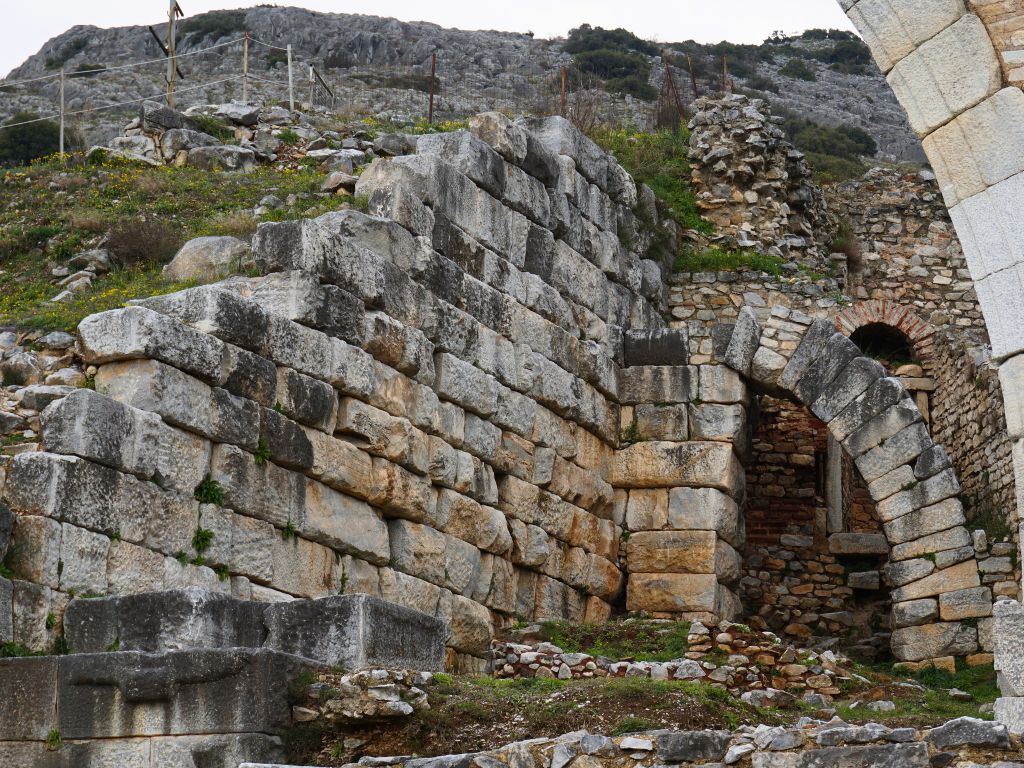
Ancient classical drama is close to what we call today, opera, which started from the orchestra. Opera started from dancing and singing at the same time.
Theater developed in two ways: tragedy and comedy.
- Tragedy was to teach the people to be pious, which was a way to avoid hubris in their life. Tragedy brought on the stage the stories of famous Greek hubrists’ interaction against the divinity. The people saw on the stage how people with hubris were punished. They witnessed the curse and the dislike of divinity expressed against a person with hubris, against their families, and generations after them. They showed that the hubrist’s curse remained until the day when a person from his family, even from the future generation of the author of the hubris, decided to face the Divine curse and make catharsis. Sophocles wrote a play about catharsis. Are you familiar with Antigone? Antigone was the older sister and daughter of Oedipus.
- The other way the ancient theater was developed was comedy. Comedy was like a mirror in front of the face of the spectator. With sarcasm and satire, comedy revealed to a person who he/she really was.
During Roman times, remember, this place was modified into an arena. And an iron fence was placed around the arena, tall enough to protect spectators from hungry animals that were brought into the orchestra. Animals entered through a floor gate. And remember, the animals were fed, in many cases, by fresh Christian flesh.
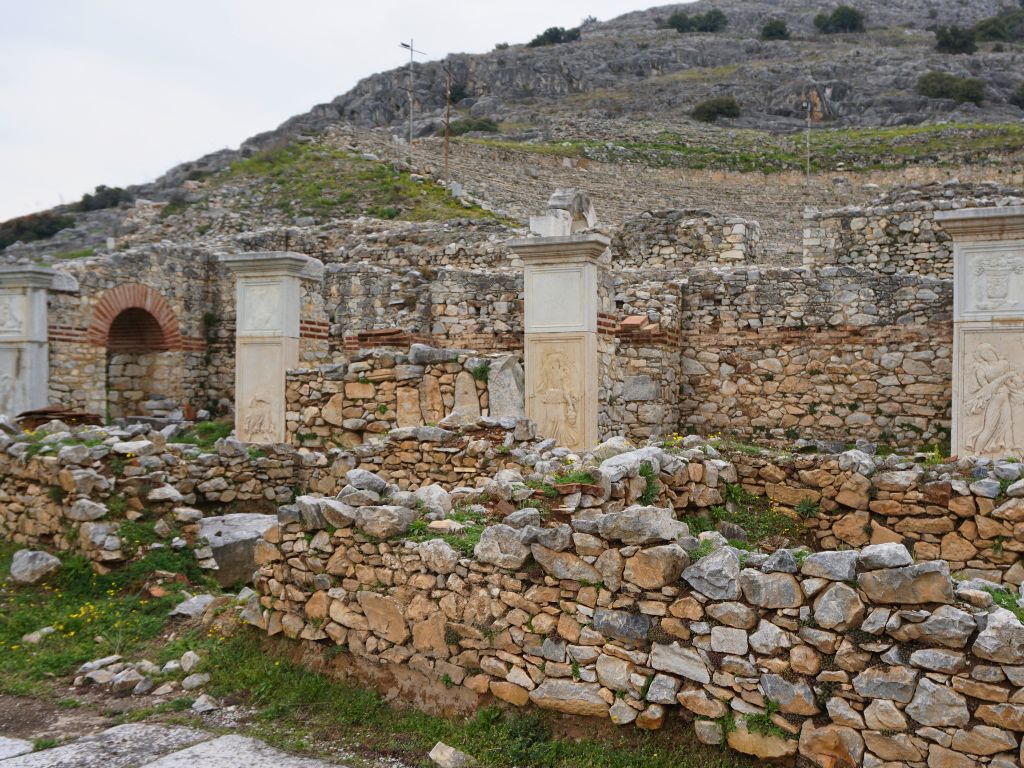
Unfortunately, the place where morals and the ethics of Athenian democracy were once taught, became the bloodiest place of the city, during the Roman times.
So, the orchestra turned into an arena, not only in Athens, and Philippi, but in all the Roman Empire. The coliseum arena became the place where Christians passed into glory. They died in front of the eyes of screaming crowds, who were full of joy, glad to see the blood and the cruel activity of the animals.
Of acoustic interest, Artist/Professor of Music at Moody Bible Institute, Dr. David Gauger, had two things about acoustics that people might be interested in.
1. Today’s orchestra took its name from the location where the musicians played. The physical location became the name of the instrumental group. So, today, the group of musicians (for example, those playing in a symphony) take on the title of orchestra.
2. We tend to think of sound radiating along a straight line, but sound radiates in a spherical pattern. The voice of an actor went directly from the stage to the audience, and it also bounced off the orchestra floor and into the audience as well. The two sound paths combined in the listeners’ hearing mechanism which made it sound louder. Amazing that the Greeks had a way to “amplify” sound (to make the sound louder for the listener) before electricity was ever invented.
Remember the story of Jesus talking from the boat to people on the shore? A related sound phenomena was utilized then also. The air above the surface of the water was cooled by the water. When Jesus spoke, the sound of His voice bounced back and forth in an acoustic tunnel (created by the waters’ surface and the cooler air layer) directing the sound more loudly to the people on the shore.
